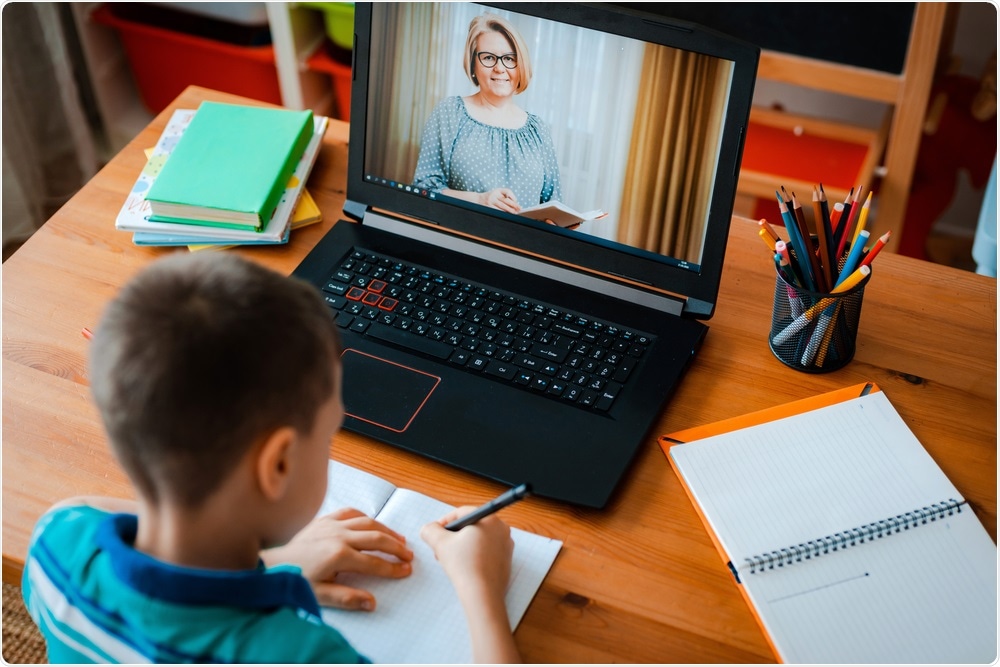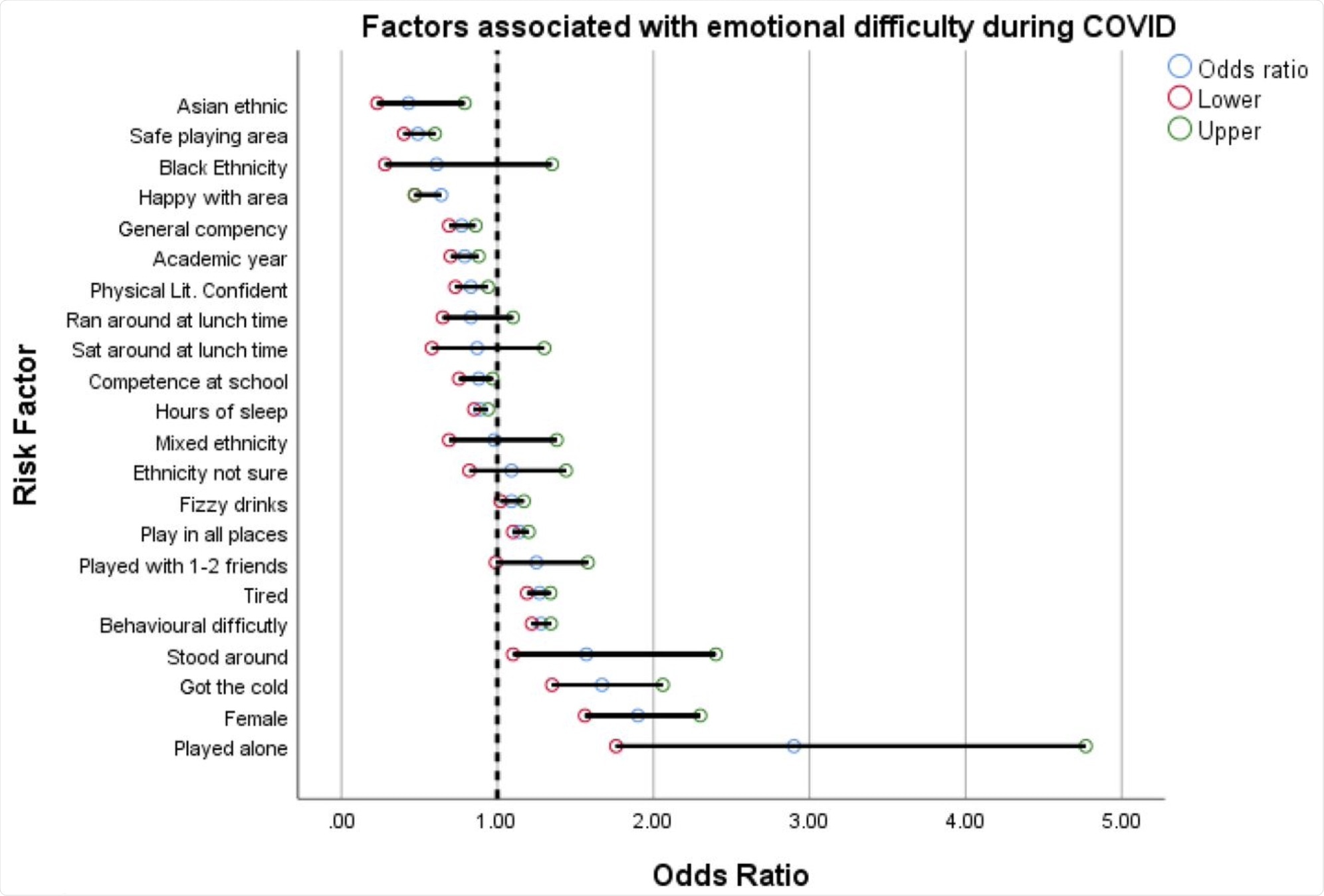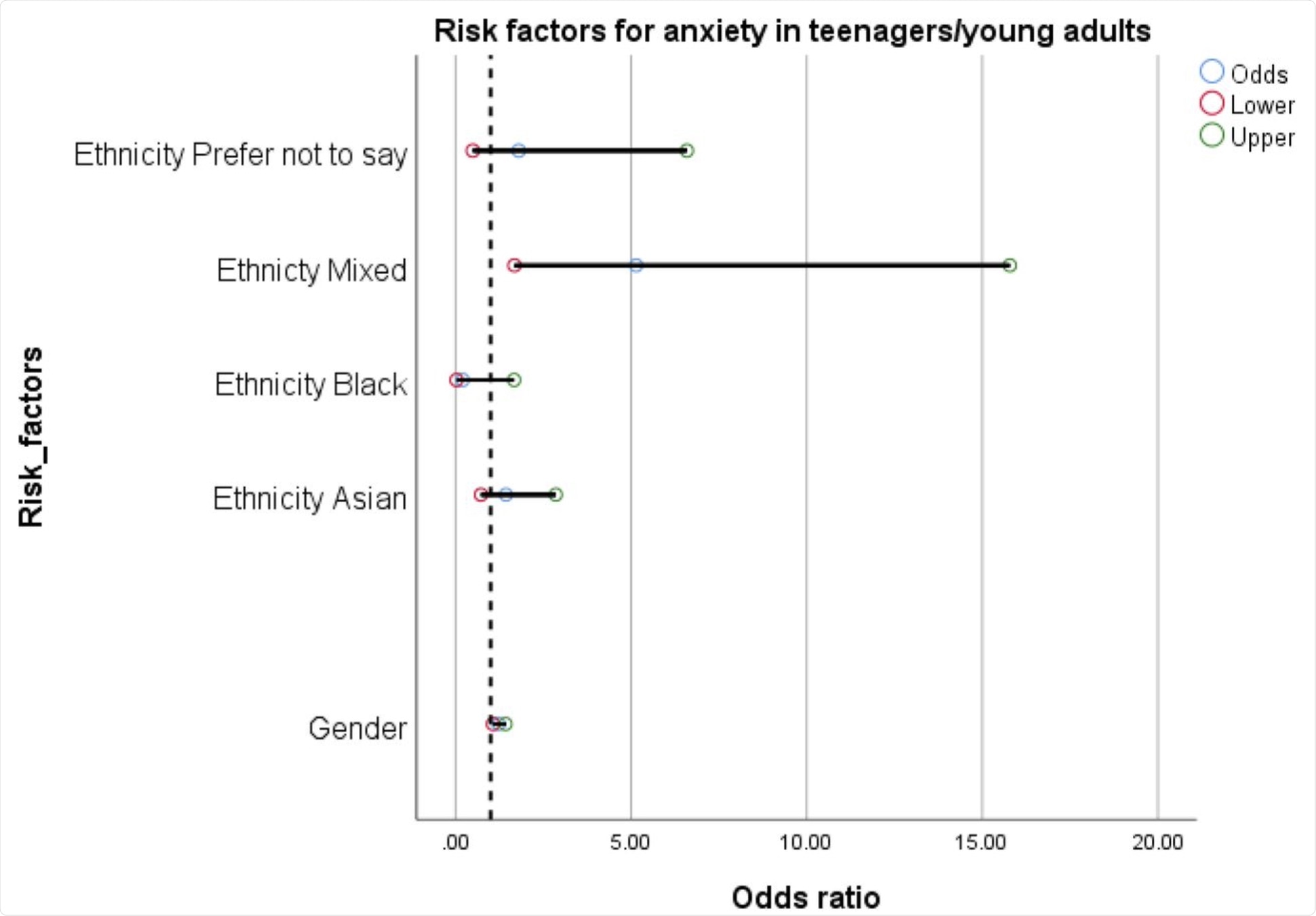The onset of the coronavirus disease 2019 (COVID-19) pandemic brought about a wide range of restrictions and guidance on the movement of people worldwide.
A national lockdown was enforced in the United Kingdom with a strict ‘stay at home’ message that included the closures of formal work, educational settings, and non-essential retail. In addition to the economic costs associated with these closures, several potential costs surrounding the wellbeing of the population have yet to be estimated.
 Study: Factors influencing wellbeing in young people during COVID-19: A survey with 6291 young people in Wales. Image Credit: Juliya Shangarey / Shutterstock.com
Study: Factors influencing wellbeing in young people during COVID-19: A survey with 6291 young people in Wales. Image Credit: Juliya Shangarey / Shutterstock.com

 This news article was a review of a preliminary scientific report that had not undergone peer-review at the time of publication. Since its initial publication, the scientific report has now been peer reviewed and accepted for publication in a Scientific Journal. Links to the preliminary and peer-reviewed reports are available in the Sources section at the bottom of this article. View Sources
This news article was a review of a preliminary scientific report that had not undergone peer-review at the time of publication. Since its initial publication, the scientific report has now been peer reviewed and accepted for publication in a Scientific Journal. Links to the preliminary and peer-reviewed reports are available in the Sources section at the bottom of this article. View Sources
The impact of school closures
Although the government-enforced restrictions were aimed at keeping the population safe from COVID-19 infection, they impacted the lives of young people in a major way.
For example, the closure of schools disrupted daily routines, reduced opportunities for students to participate in physical activity, and significantly altered socialization. Taken together, each of these impacts of educational closures likely had detrimental impacts on the physical and mental health and wellbeing of students around the world.
Feelings of stress, anxiety, isolation, and unhappiness were noted in young people as they were cut off from their support networks. The home environment also played an important role in students’ lives, as it became the place for socialization, support, education, and physical activity.
In a recent study published on the preprint server on the medRxiv*, researchers offer recommendations for the wellbeing of children and young people during the pandemic in an effort to prevent long-term consequences.
About the study
The study was conducted between September 2020 and February 2021. Data were acquired through two online surveys known as the ‘HAPPEN’ and ‘COVID & Young People’ surveys.
Whereas the ‘HAPPEN’ survey included participants aged 8 to 11 years, the ‘COVID & Young People’ survey included participants between the ages of 11 and 25. Both of these surveys were used to obtain information on the typical health behaviors of children and young people between the ages of 8 and 25 in an effort to assess their health and wellbeing.
When assessing survey responses for the HAPPEn survey, the researchers relied on the Me and My Feelings (MMF) measure of emotional and behavioral difficulties. Comparatively, the Generalized Anxiety Disorder (GAD7) measure was used for the responses provided by individuals between the ages of 11 and 25.
In both studies, participants were asked to rank their happiness in terms of their health, life, education, family, and friends. Each participant ranked their happiness on a scale of 1 to 10, with 10 indicating their happiest.
Study findings
The responses obtained from both children and young people as a group indicate that being a girl and being in secondary school increases the likelihood that the child will report feeling less happy in their health, education, life, family, and friends. This young population was also found to be at a higher risk of clinical emotional difficulties and higher anxiety levels.
The results also showed that the emotional wellbeing of the primary-aged children could be improved if they feel competent, confident, and supported socially. The benefits associated with playing and being physically active include physical, cognitive, emotional, and social development.
 Factors associated with emotional difficulties in children during COVID-19.
Factors associated with emotional difficulties in children during COVID-19.
Comparatively, the findings from older children and young people suggest that individuals who were of mixed ethnicity were more likely to experience general anxiety. Individuals who preferred not to indicate their gender or ethnicity also reported higher anxiety levels.
It was also evident that online learning led to anxiety in many secondary school pupils. Those at the university level had concerns regarding their prospects rather than their current state.
 Factors associated with anxiety in teenagers/young adults.
Factors associated with anxiety in teenagers/young adults.
“However, despite the negative impact of COVID-19 on wellbeing particularly for girls and older children, qualitative results from this study suggest there may also have been some positives particularly with online learning.”
To this end, some participants suggested that online learning helped them to learn at their own pace, in the comfort of their home, and without extreme pressure. Along with this, these participants found that they could get consistent support from their parents while attending school virtually.
Conclusion
“When examining the predictors of wellbeing in children and young people as a group, it is evident that gender (being a girl) and age (being in secondary school) are significant predictors of feeling less happy (with health, education, life, family, and friends), having emotional difficulties and anxiety.”
Specific recommendations from this study include the need for socialization and play in younger children, as well as mental health and future support for the older ones.

 This news article was a review of a preliminary scientific report that had not undergone peer-review at the time of publication. Since its initial publication, the scientific report has now been peer reviewed and accepted for publication in a Scientific Journal. Links to the preliminary and peer-reviewed reports are available in the Sources section at the bottom of this article. View Sources
This news article was a review of a preliminary scientific report that had not undergone peer-review at the time of publication. Since its initial publication, the scientific report has now been peer reviewed and accepted for publication in a Scientific Journal. Links to the preliminary and peer-reviewed reports are available in the Sources section at the bottom of this article. View Sources
Journal references:
- Preliminary scientific report.
James, M., Jones, H., Baig, A., et al. (2021). Factors influencing wellbeing in young people during COVID-19: A survey with 6291 young people in Wales. medRxiv. doi:10.1101/2021.08.13.21261959. . https://www.medrxiv.org/content/10.1101/2021.08.13.21261959v1
- Peer reviewed and published scientific report.
James, Michaela, Hope Jones, Amana Baig, Emily Marchant, Tegan Waites, Charlotte Todd, Karen Hughes, and Sinead Brophy. 2021. “Factors Influencing Wellbeing in Young People during COVID-19: A Survey with 6291 Young People in Wales.” Edited by Toni-Kim Clarke. PLOS ONE 16 (12): e0260640. https://doi.org/10.1371/journal.pone.0260640. https://journals.plos.org/plosone/article?id=10.1371/journal.pone.0260640.